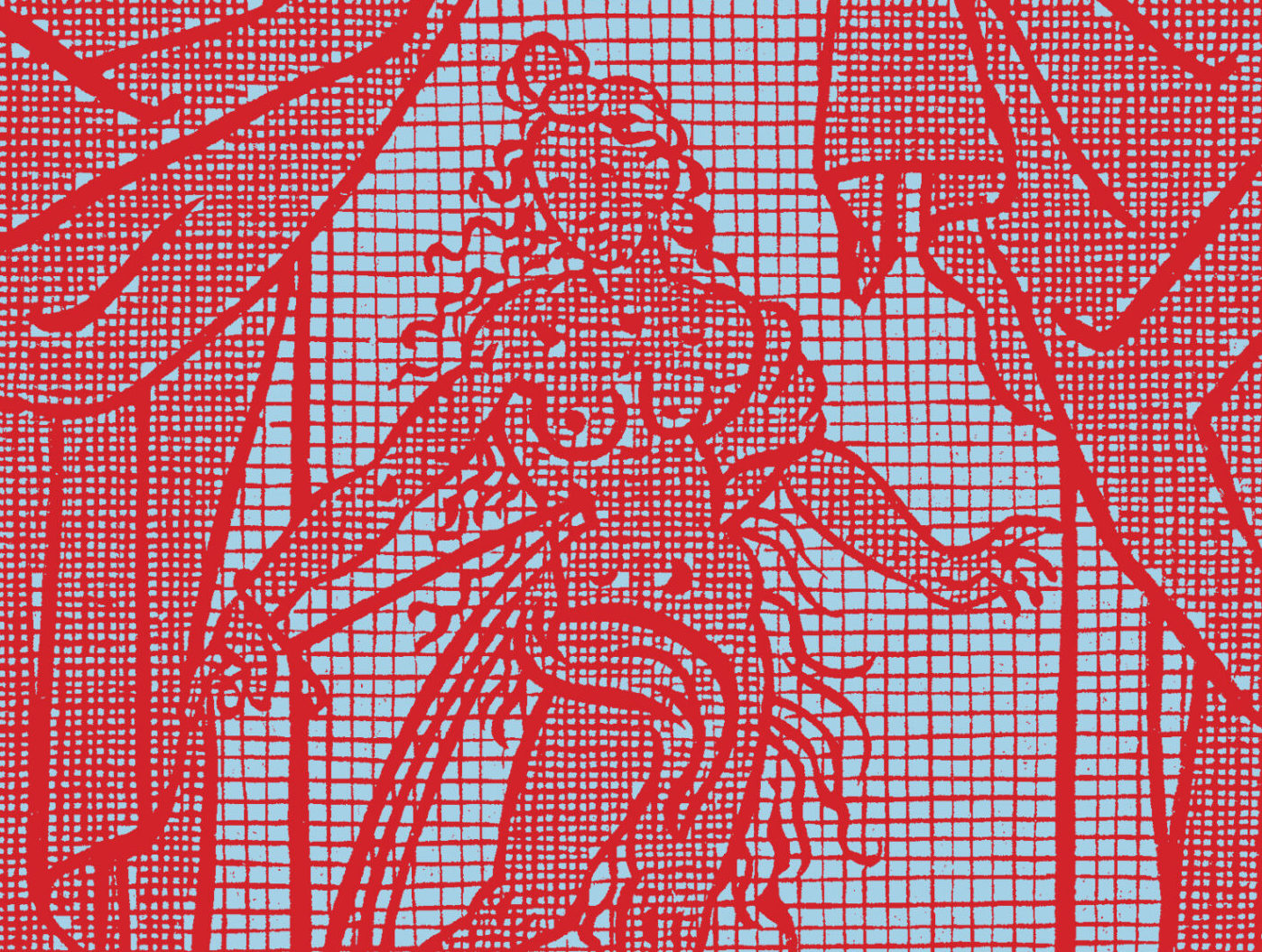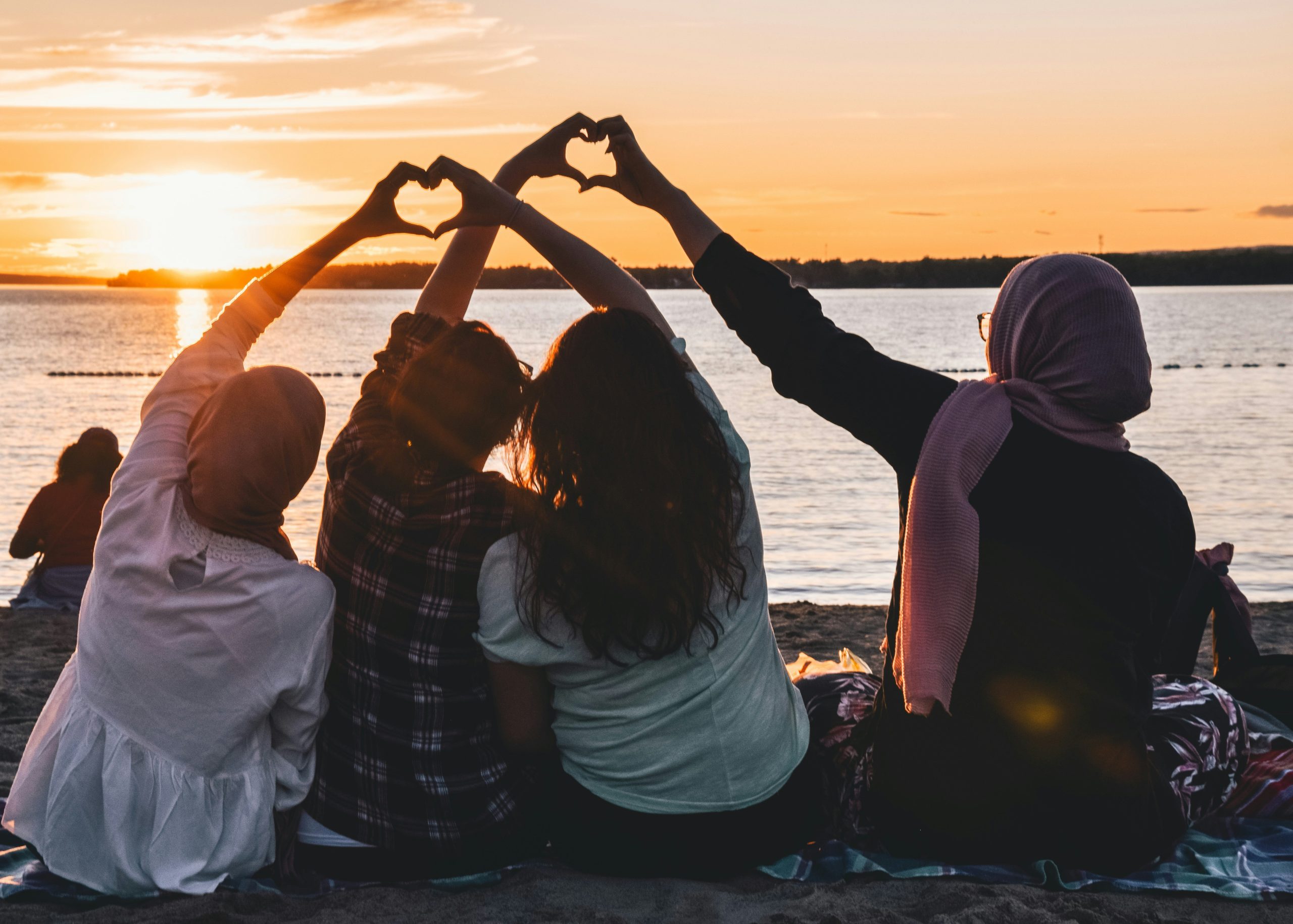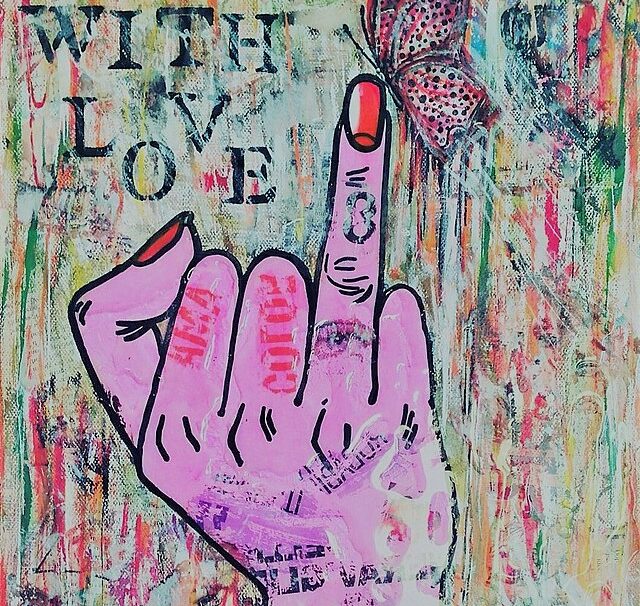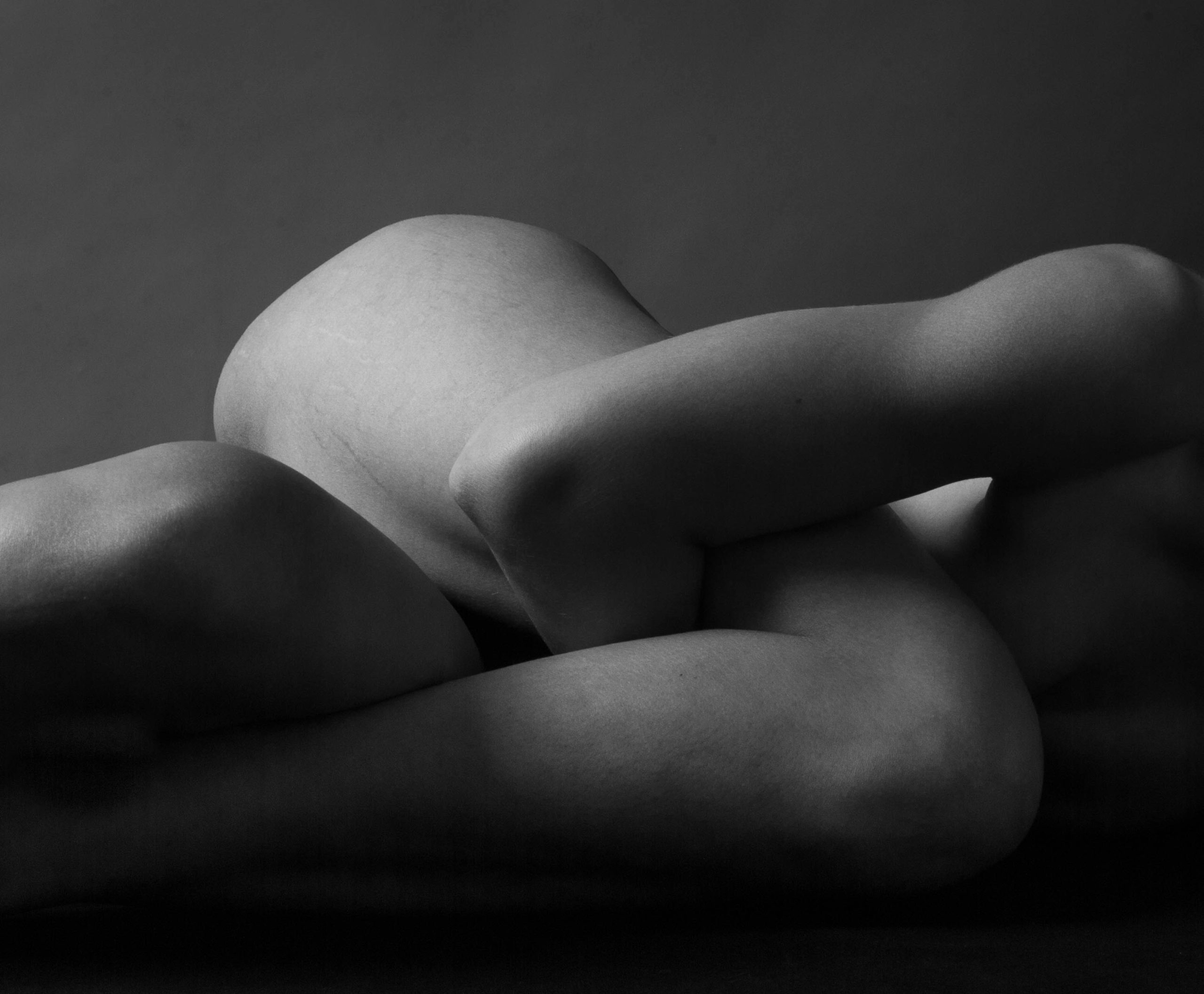Interviews
A Trans Woman’s Shapeshifting Love Story
Aurora Mattia's novel "The Fifth Wound" is about the wounds we are given and those we choose

Aurora Mattia’s debut novel The Fifth Wound is a fantastical journey through the formulation of one trans woman’s truth. Mattia’s own recapitulation as protagonist Aurora aka @silicone_angel bridges the gap between ancient Greece, Covid-era Brooklyn, and the rolling fields of Iowa searching to see herself and her beloveds clearly. Through a combination of memoir, mythology, criticism, and fantasy, Mattia attempts to capture the most ephemeral realities and absolute truths about life and love, transition and femininity through peaks of pain and pleasure—not by looking at the horizon beyond these passing sensations, but by traveling through them like a prism, using the transitional power of language to crystallize and shatter life’s most intimate moments.
The Fifth Wound follows Aurora from an island of singing sirens to the cold sterility of hospital rooms to the warmth of a lover’s arms as we see Mattia’s avatar construct and reconstruct her narrative in real-time. Over the course of three acts, she reveals not only the limitations of crafting a story as it’s being lived, but also the world’s inability to offer queer(ed) narratives the space to eventuate beyond the very forms that seek to restrict, destroy and co-opt them.
I spoke to Mattia over Zoom a few months after the book’s release to discuss creating and protecting our own narratives, the difference between the wounds we are given and those we choose, and how her work has been misinterpreted by critics and understood by exes.
Christ: At the beginning of the book, you bring up Eternal Sunshine of the Spotless Mind, and Kate Winslet’s character. Was the archetype of a manic pixie dream girl in your mind at all as you were crafting the character of Aurora?
Aurora Mattia: That movie had a big impact on me. I saw it when I was like 12 or 13. I took it a bit too much to heart—the idea that even if we try to erase each other, we will somehow be drawn together again, because something deeper than memory holds sway over love, that love is somehow subatomic. More simply, the idea of perpetually cycling through being together and breaking up over the course of a lifetime was impactful on my ideology of love as an adolescent and later played itself out in reality, in my 20s. My writing about the movie is partially a self-critique, an attempt to describe the ethics that I was operating from in my first few years of transition, a lot of which had to do with this sudden shift from being freakish to being very desirable, suddenly accessing this feminized power that came from desirability. I had this idea, not a conscious idea but lived-from idea, that I had suffered so long to make myself beautiful, therefore I could be mentally unstable, emotionally reckless, without taking responsibility for that. But the side effects of my mental instability accumulated over time and forced me to reframe my own narrative within the context of the narratives of the people I loved but who, at the same time, I was treating with carelessness and recklessness.
C: I got the idea that a lot of the disconnects between Aurora and Ezekiel come from the incongruence between one’s idea of their lover and the reality of their lover. Were there any characteristics individually or as a pair that you think made that dissonance especially difficult for Aurora and Ezekiel to cope with?
AM: Almost every review has referred to Ezekiel as a man, without reference to his queerness. It’s understandable to a degree, considering in the third chapter, Aurora says, “Put simply, we were both fairies…[But] he became a man and I became a woman.” Even though it appears so early in the book, reviews have tended to treat that as a decisive statement, when clearly it’s just one moment of my narrator perceiving, trying to understand, Ezekiel’s gender—attempting to understand her gender in relation to Ezekiel’s, because the question of their genders is so central to the question of their love; or, their uncertainties about femininity are so central to the manner in which they seek intimacy with one another. In that same third chapter, early in the book, Aurora says, “If I had decided to remain a fairy, I would have wanted to be like Ezekiel,” and in the very last chapter, Ezekiel says “When we have sex, I imagine that I’m you.” No review has referenced those scenes, which is interesting to me, and suggests a kind of reticence, a kind of tip-toeing around, or maybe even a refusal to acknowledge the instability of the manner in which these two characters relate to themselves and each other.
I had this idea that I had suffered so long to make myself beautiful, therefore I could be emotionally reckless without taking responsibility.
They first fell in love, years before the beginning of the book, as gay boys, and in the third and final section of the book, when they are pursuing, again, some kind of romantic intimacy; when Aurora does Ezekiel’s makeup and Ezekiel has a revelation about his own beauty—it’s clear that there’s much more to their relationship than ‘the love of a man and a woman,’ that to treat it as such is to deny the very substance—convolutions of shame and dream and desire, trauma and poetry and mirror-play—that drew Aurora and Ezekiel together in the first place.
Reviewers have described the final section as a “romance.” To me it’s no more or less a romance than the rest; if anything, it’s just the acute form of what preceded it. For her part, meeting Ezekiel again years after she transitioned, Aurora is trying to determine whether she can even access the ability to feel embodied around him anymore, both because so much of her manner of relating to Ezekiel is through mythmaking from the distance of their separation, and because when they first fell in love eight years before, their bodies were similar, and now they are not at all—her body now is entirely different, so the manner in which her body relates to his, and his to hers, will also be entirely different. Reading Ezekiel as a man and Aurora as a woman, rather than two queer people rotating through various realities, is a way of flattening them both; this flattening has caused the intention of the third section to be misread as a romance, because it’s really a way trying to figure out what these people can mean to each other, if that meaning can exist outside of the dream, if it can help them understand themselves without, somehow, destroying them both.
C: It’s interesting that coverage of the book has reduced that last section to heterosexual romance. Throughout the whole book, I always had the sense that Ezekiel wasn’t simply a fairy or a man. There was certainly more going on there. That’s teased through conversations and interactions with Aurora and that part that you mentioned was such a heartbreaking moment. The second time I was reading the book I didn’t want to get there because it unmoors everything that had come before it. What function does Autofiction provide for the central romance between Aurora and Ezekiel and also Aurora’s relationships with Velvet and Noel as well?
AM: I think part of my transition has been an attempt to make whole and restore a paradise that never existed. A way of trying to create what should have but never happened, and of trying to save myself from what did happen. But every time I try to restore my own past, some new calamity blows me back, and then I have to abandon one half-finished attempt at whole-making for another, more immediate one. I was not writing a transition narrative, by which I mean I wasn’t trying to narrativize a character going through a transition, or retrofit some perfected idea of my transition; I was trying make a transition-language, trying to write a book that constantly shapeshifts and transforms itself, trying to represent, by means of a mythological language, a kind of feminine shapeshift and reaching for beauty, by which I mean a reaching for communion. The way that seemed most efficient was to bind together the fantastical elements of my short stories with atoms of my own experience, moments of crisis and intensity, or put simply, of extreme embodiment, pain or pleasure or both. In his essay about the Angel of History, Walter Benjamin says that understanding the past is not about creating a narrative chain of events; it’s about what you see—what is illuminated, like a landscape in a lightning flash—when you experience a moment of crisis, that such a moment creates the opportunity for a sudden, brief and total clarity about who you are and how you arrived there, I mean some kind of truth about the past.
C: In the book’s last section, there’s a direct-to-camera address that I love where you talk about how “minimalism is a luxury reserved for people who can expect to be understood.” Was it important to you that the book is not an easy read and forces readers to work for the fruits of Aurora’s knowledge and experience?
I think part of my transition has been an attempt to make whole and restore a paradise that never existed.
AM: I made the first chapter the densest, because I didn’t want strangers with a desire to “understand,” as they like to say, “the trans experience,” to pick up and read it and know the secrets that lay within or whatever. The only people I want to finish the book are the ones who really want to read it, who feel compelled to keep reading it; the first chapter tests that, which isn’t great marketing, but was a purposefully self-protective design. The entire first section—the book is split into three sections, three waves, three angles of approaching the same problem—the first section is probably the hardest in terms of footwork; the second two have longer stretches of straight narrative. As I wrote the second section, the chapters about being assaulted during sex and subsequent medical violence, most of which takes place over the course of a single night, I felt very protective over it. Everything I had set up in the first section, my way of overcoming pain through mysticism and magic, the second section rebukes; the same mystical impulse that protects me in the first section fails to protect me in the second, because reality overwhelms me, I am outnumbered, and my halo of fantasy dims and is extinguished.
With the first and second sections of the book, I wanted to represent two experiences of violence that actually happened—the knifing and interrogation in the first, the assault and, as it were, “medical malpractice” of the second—and how I passed through them in very different ways. After the former, I received really good medical care and also painkillers; the violence was abridged. My consciousness was altered and softened, whereas with the second, the violence was extended and ramified; so much of that night was me screaming over and over again in a very flat and reiterative environment. I protected that night—the night I lived and the night I wrote—by making the first section of my book so dense. I didn’t want a so-called “general reader” to finish my book. I’ve never intended to have a large audience.
C: In the second instance of violence that you’re referencing in the book, spliced into that sequence, is an extremely tender moment of almost unbearable kindness between Aurora and this other trans girl. I was wondering if you could speak a little bit about capturing that moment and that connection between those two characters. Do you see pain as like inextricable from bond between trans women?
AM: Even thinking about it, I get really emotional. What is striking to me about that moment, about that interval of oasis, was how I shared it with someone I didn’t particularly get along with. I had a roommate who was also a trans girl, and we hung out a lot, but there was also a lot of tension between us—as often happens between strangers who move in together. But in that moment, there was no need to translate what was going on. She immediately understood.
I had bottom surgery after nine months on hormones. My college insurance had a program for trans people, but very few students had attempted to use it for bottom surgery—not to mention that there were very few trans women at the school. So there was a lot of heavy lifting I had to do; I spent a lot of my senior year getting approval for surgery, because my insurance was going to run out when I graduated and I wasn’t sure if or when I would have coverage for a surgery like that in the future. At one point an administrator told me I was the first student to have bottom surgery on their insurance plan.
All of which is to say, I had that surgery really early. I took a leap of faith.
There isn’t much good information about it, and you can’t really trust surgeons and doctors anyway, so obviously, we—those trans women who seek these surgeries—do a lot of information-sharing with each other. My roommate had asked me a lot about it.
Which brings me to that moment. I had fulfilled a particular dream. The story was over. For years I was living my life with a pussy, but then, in the course of about twenty minutes on one particular night, a guy who I was sleeping with ripped it apart. Up until that moment, I had, it seemed, finished the hardest part, with regard to my pussy: getting one in the first place. I’ve heard trans women say, “once that’s done, it can’t be taken away.” I believed that, too, I think; and I think my roommate did, too. So it was shocking for both of us, when I stumbled out into the living room. For me, it was happening to my body. For her, she was watching the destruction of an idea, but an idea that was extremely precious to her—while my dream was destroyed, her own dream was, in a profound way, damaged. I think that broke her heart and mine at the same moment, so she was able to intercede on my behalf in a very visceral way. Her intercession was a big part of what got me through that night.
I don’t want to say pain is what brings trans girls together, but I think, in that particular case, both of us witnessing, together, the destruction of that dream, broke through all the ego trans girls can have with each other: wanting to be the prettier one, or wanting to know more about transition, the insecurity and infighting, the manic pixie second-puberty high-school-drama which we sometimes play out in our twenties. All of that immediately broke apart, and she was able to see what I needed exactly at that moment and create a halo of safety around me when I was extremely unsafe.
C: The book approaches wounds from different angles. There are the wounds we choose through surgeries, the wounds we choose through self-harm, and the wounds given to us by the violences of the world. What holds the most meaning or impact in the taxonomy of wounds that you construct throughout the book?
AM: They become bound up in each other, and they did in my own life, too. At that time, I was attempting, in my writing and my life, to use fantasy to save myself from reality.
For example, the way the Aurora-narrator writes about the knifing. It’s clear that, in an attempt to save herself from pain, she is projecting onto the person who knifed her a kind of mutual understanding, as if she hadn’t experienced violence but rather, care. This derangement of her own experience leads her back to self-harm, as if she can understand the knifing by taking a knife to herself. As if self-harm is a way of opening a portal, not only to the knifing, but to all the violence she has absorbed from others—as if opening that portal will teach her something about embodiment, because long before the knifing, it was violence—physical and emotional— that disembodied her in the first place, so if she can return to the scenes of her disembodiment, she can maybe reverse its course, can have her body back.
Self-harm is, in part, doing the world’s work for it. Aurora is a very paranoid character and is always worried about violence being done to her, but the person she’s received the most violence from is herself. That speaks to part of the reason she’s so paranoid, because she recognizes herself as a danger and she can never escape herself.
But her self-harm is not, in the end, limited to herself. It is implosive, but it is also explosive—it harms and traumatizes the people she loves. Self-harm is a microcosm of the interrelationship of trauma and responsibility; she is giving herself a wound because she is approaching the desire to die, and the only way to forestall death, she thinks, is to release the pain, to release the violence she has absorbed from others, through her wound. She sees herself as having no other options. But by giving herself a wound she defers that pain onto her partner Noel, who not only witnesses, first hand, her bleeding and screaming and drunkenness, but washes the blood out of her clothes and out of the floor, and helps her sew her wounds shut. Noel absorbs the violence that Aurora releases into their home; by harming herself, Aurora forces Noel to absorb that violence. She doesn’t give Noel a choice; she takes from Noel the ability to choose how to love her, forces Noel to love her in a way that terrifies them, that threatens and damages their own safety. Even for those who are far away, Aurora creates a sense of fear and uncertainty in the people she loves—the possibility of her self-harm, never far away, makes love itself feel unsafe, makes intimacy feel unsafe—a fear echoed by Ezekiel when he says, in their last conversation before he leaves, “Don’t die, Aurora. I need you there in the future.” It is impossible to care for others when I am destroying myself, because when I am destroying myself I am also destroying those who love me. For others, there is no choice, in the end, but to leave. Aurora and I both learned that lesson.
C: There’s another quote in the book where you kind of state your hope for the book directly. You say, “I’m writing this book of wounds of events outpacing meaning, and I hope it can help you survive.” Do you feel like you’ve succeeded in that goal?
AM: What matters most to me is what the people I love thought of it. Because to me it wasn’t just a book. It was a way of trying to learn to live and honor the people who have helped me survive.









